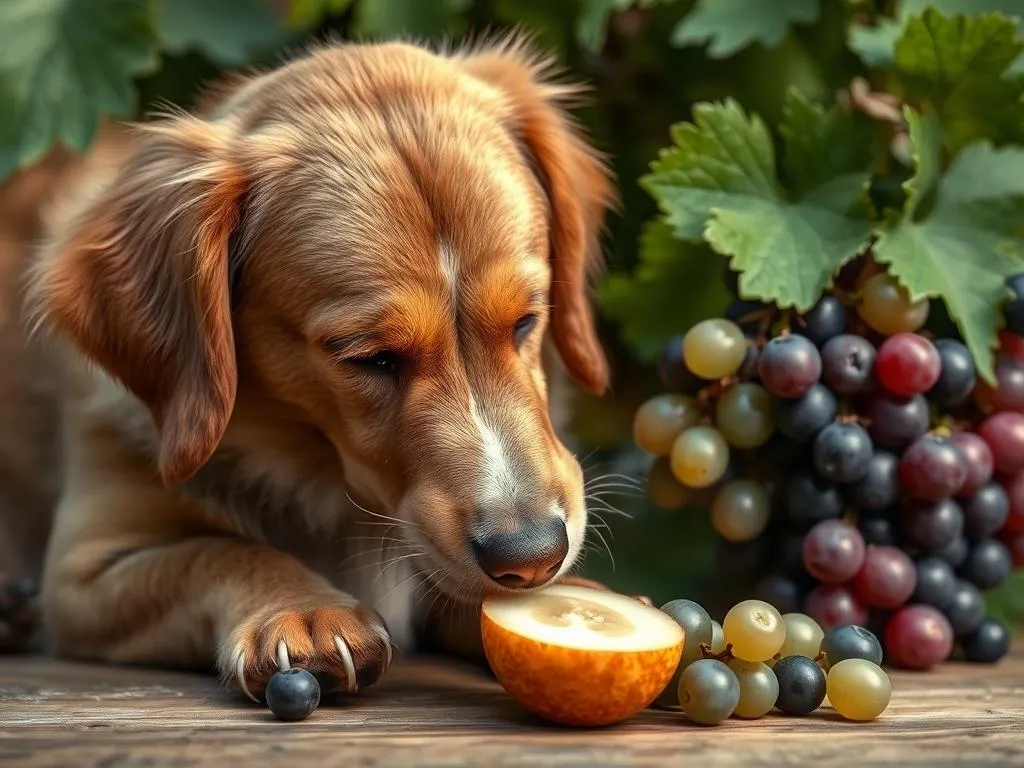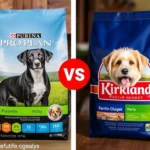
I. Introduction
Understanding dog nutrition is crucial for any dog owner. It plays a significant role in a dog’s overall health, energy levels, and longevity. One common question that arises among pet owners is: can dogs eat seedless grapes? This question is vital because many dog owners may not be aware of the potential dangers associated with feeding their furry friends certain foods.
Misconceptions about what dogs can and cannot eat are common. While some foods are safe and even beneficial for dogs, others can lead to serious health issues. Grapes, in particular, have garnered attention for their toxicity, making it essential to explore this topic thoroughly.
II. Understanding Dog Nutrition
Essential Nutrients for Dogs
To ensure our dogs live happy, healthy lives, it’s important to provide them with a balanced diet that includes essential nutrients:
- Proteins: Building blocks of a dog’s body; necessary for growth, maintenance, and repair of tissues.
- Fats: Essential for energy, supporting cell structure, and aiding in the absorption of fat-soluble vitamins.
- Carbohydrates: Provide a source of energy; however, they should be fed in moderation.
- Vitamins and Minerals: Support various bodily functions and overall health.
The Role of Diet in Dog Health
The impact of diet on a dog’s health cannot be overstated:
- Weight Management: A balanced diet helps maintain a healthy weight, reducing the risk of obesity-related issues.
- Energy Levels: Proper nutrition fuels a dog’s energy, affecting their activity levels and overall mood.
- Overall Health and Longevity: A well-rounded diet plays a significant role in preventing diseases and ensuring your dog lives a long, healthy life.
III. Grapes and Dogs: The Risks
Toxicity of Grapes
While grapes (and raisins) are popular snack options for humans, they are extremely harmful to dogs. Can dogs eat seedless grapes? The answer is a definitive no. Research has shown that grapes can cause acute kidney failure in dogs, and the exact substance responsible for this toxicity is still unknown.
Numerous reports have documented cases of dogs suffering severe health issues after consuming grapes or raisins, leading to increased awareness among pet owners regarding these fruits.
Symptoms of Grape Poisoning
If a dog ingests grapes, it’s crucial to be aware of the signs of grape poisoning. Symptoms may include:
- Vomiting
- Diarrhea
- Lethargy
- Loss of appetite
- Abdominal pain
- Increased thirst and urination
Recognizing these symptoms early can be a matter of life and death, making prompt veterinary attention essential.
Comparison of Seedless vs. Seeded Grapes
A common myth is that seedless grapes are safe for dogs, but this is not true. Both seeded and seedless grapes pose similar risks regarding toxicity. There is no evidence to suggest that the absence of seeds makes any difference in terms of their harmful effects on dogs. Therefore, it’s best to avoid grapes entirely.
IV. Nutritional Alternatives to Grapes
Safe Fruits for Dogs
Fortunately, there are many fruits that are safe for dogs and can serve as healthy alternatives to grapes. Some dog-safe fruits include:
- Blueberries: Packed with antioxidants and low in calories.
- Bananas: High in potassium and good for heart health.
- Apples: Rich in vitamins A and C; just be sure to remove the seeds and core.
- Watermelon: Hydrating and low in calories; remove seeds and rind.
Serving Size Recommendations
When introducing new fruits to your dog’s diet, moderation is key. A general guideline is to offer small pieces as treats and monitor for any adverse reactions.
Other Healthy Treat Options
In addition to fruits, there are various vegetables that dogs can enjoy:
- Carrots: Great for dental health and low in calories.
- Sweet potatoes: High in fiber and vitamins.
- Green beans: Low-calorie snack packed with nutrients.
Owners should weigh the benefits of commercial dog treats against homemade options. Homemade treats allow for better control over ingredients and can be tailored to your dog’s preferences.
Creating a Balanced Diet
To ensure your dog receives a well-rounded diet, consider the following tips:
- Variety is Key: Incorporate different proteins, grains, and vegetables to keep meals interesting and nutritionally diverse.
- Consult a Veterinarian: Always consult with your veterinarian to formulate a meal plan that suits your dog’s specific needs based on age, breed, and health condition.
V. How to Handle Suspected Grape Ingestion
Immediate Steps to Take
If you suspect your dog has ingested grapes or raisins, act quickly. Here’s what you should do:
- Assess the Situation: Determine how many grapes were consumed and when.
- Contact a Veterinarian: It’s crucial to call your veterinarian or an emergency animal clinic for advice.
- Do Not Induce Vomiting Without Guidance: Only induce vomiting if directed by a professional, as this can sometimes cause more harm than good.
Veterinary Care and Treatment Options
Upon visiting the veterinarian, treatment options may include:
- Inducing Vomiting: If the ingestion was recent, the vet may induce vomiting to prevent further absorption of toxins.
- Activated Charcoal: This may be administered to limit the absorption of any remaining toxins in the gastrointestinal tract.
- Supportive Care: Intravenous fluids may be necessary to support kidney function and hydration.
The prognosis for dogs exposed to grapes varies. Early intervention increases the chances of recovery, highlighting the importance of swift action.
VI. Conclusion
In summary, can dogs eat seedless grapes? The answer is clearly no. Grapes pose a significant risk to dogs, and it’s vital for pet owners to stay informed about the foods that can harm their furry companions. A balanced diet is essential for your dog’s health and well-being, with plenty of safe alternatives available.
Maintaining an awareness of what constitutes a healthy diet for dogs can prevent dangerous situations and ensure their happiness and longevity. Encourage your fellow dog owners to educate themselves about pet nutrition and share any experiences or tips in the comments.
VII. Additional Resources
- Recommended Reading: Look for books and articles on dog nutrition to broaden your knowledge.
- Expert Organizations: Consult reliable veterinary resources and pet health organizations for the latest information on dog health and safety.
- FAQs Section: Always be curious and ask questions about dog nutrition and safety to deepen your understanding and ensure the best care for your pet.









